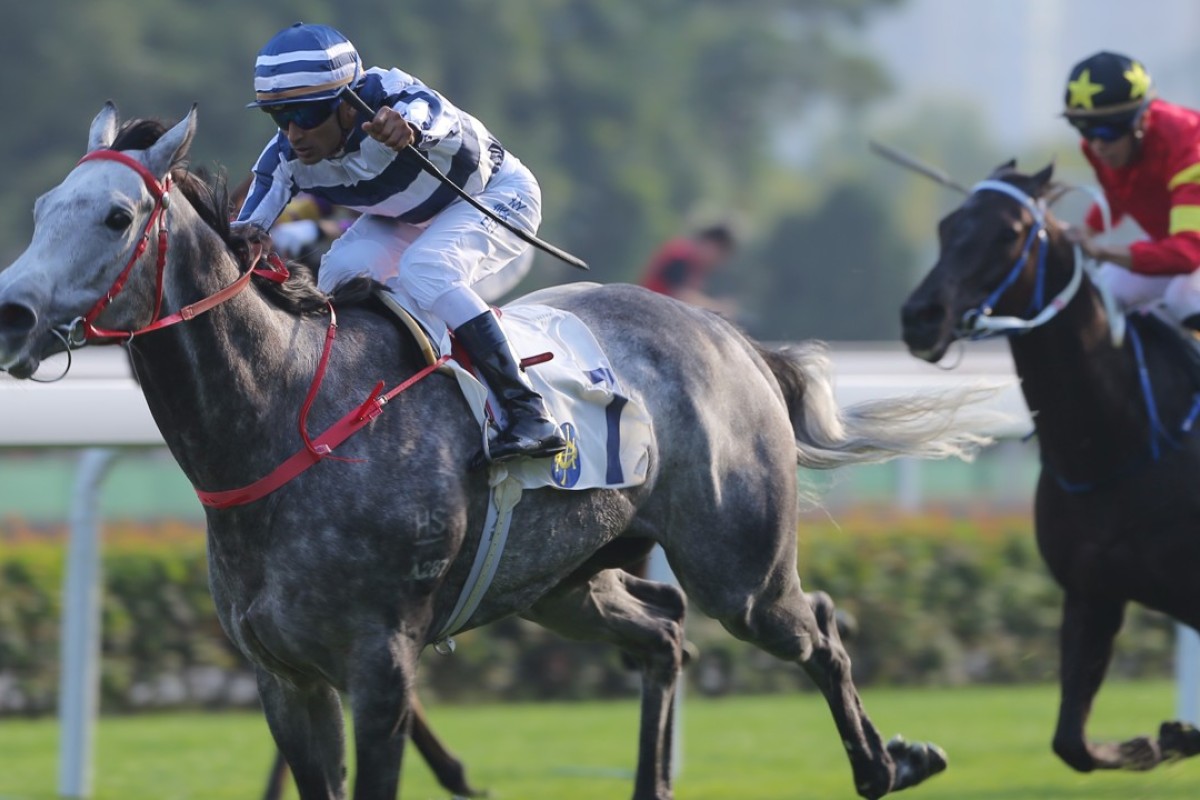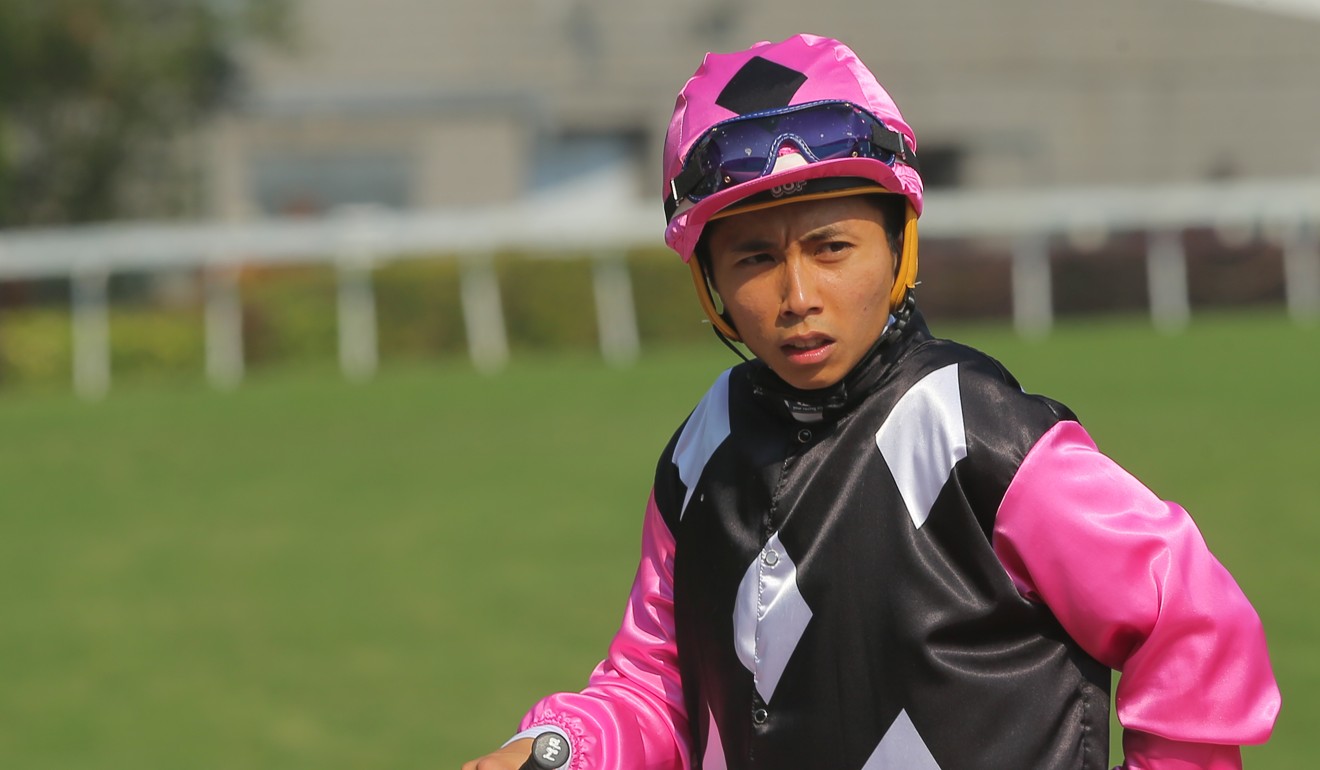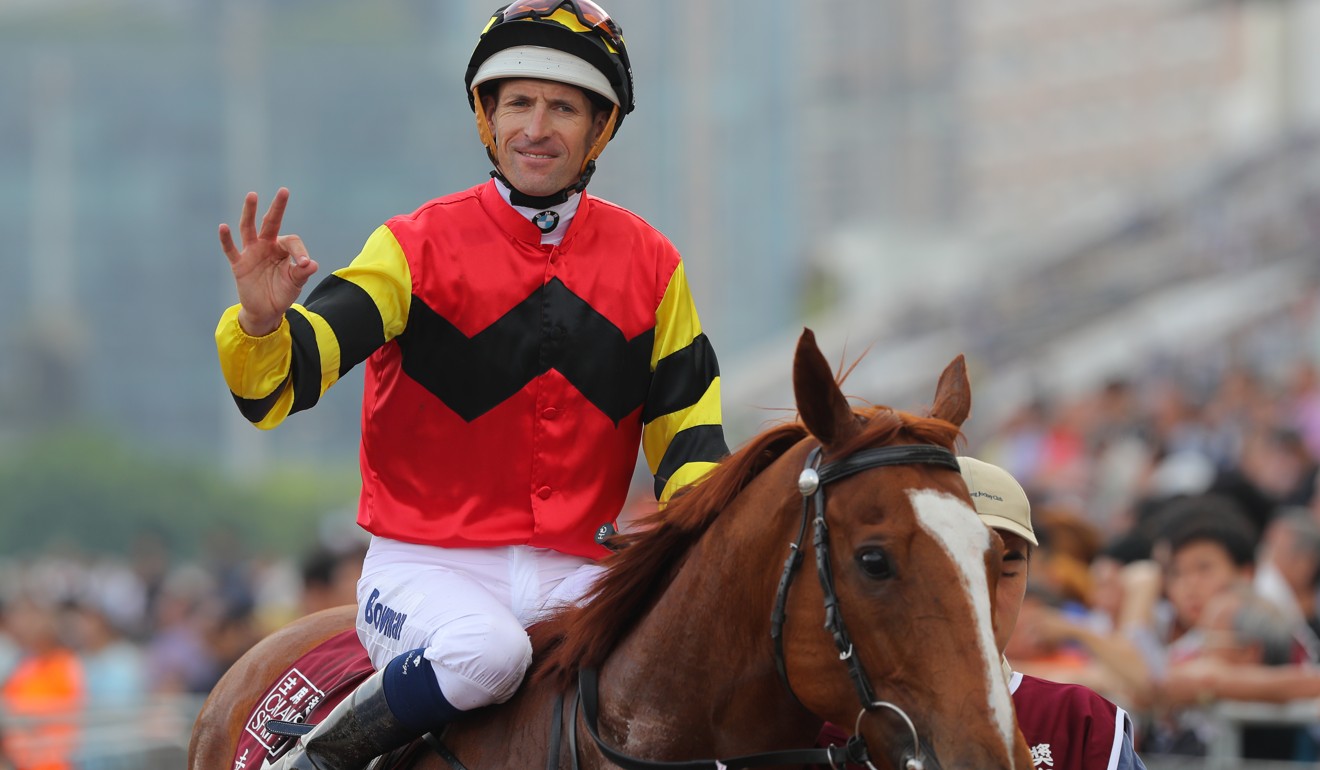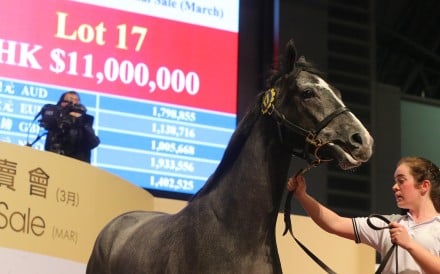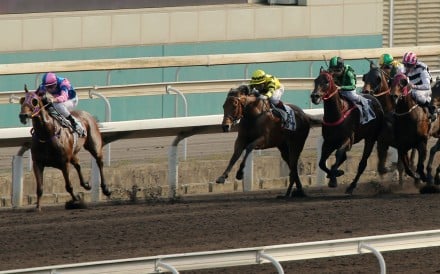If you’re a sick individual with nothing better to do, you might have read the stewards’ report from Sunday’s Sha Tin meeting and noticed that Karis Teetan only received a two-meeting ban for careless riding on Fifty Fifty, with time off for good behaviour.
And if you really work at having nothing better to do, you might even think that was curious since you’d know that Teetan had already incurred two careless riding bans this season, on the same horse.
So, the good behaviour discount seems somewhat misplaced but it’s tied up in the process stewards use nowadays to determine the rider’s good record, averaging suspensions out against rides ridden over time.
And Teetan, with his previous bans in May and then December 11, 2016, before that, apparently caught the right number since he’d had the best part of 600 rides since that international day suspension last year. So, two days instead of three.
Fifty Fifty #五十五十 wins the Chevalier Cup for @KarisTeetan from Exultant #時時精綵, now second in both his HK starts #HKracing pic.twitter.com/qDAuxaZHlA
— HKJC Racing (@HKJC_Racing) November 26, 2017
Which is just as well because, as he departed the racecourse, the normally jolly and smiling Mauritian Magician was upset enough over getting a ban at all on Fifty Fifty and appeared to have a victim of the “Go-too-slow Club” which has been expanding in recent times.
We touched on it last week after the Jockey Club Sprint, when the brakes were slammed on at halfway and Lucky Bubbles was lucky indeed, lucky to stand up, but it was not simply that race.
There has been a pattern developing of leaders running at a sharpish early pace to find the front and then choking off the speed just as sharply, causing horses behind to check and overrace and generally get in each others’ way.
Mr Stunning #紅衣醒神 runs away with the G2 BOCHK Wealth Management Jockey Club Sprint under @nashhot #HKIR pic.twitter.com/5NdJEbLr2N
— HKJC Racing (@HKJC_Racing) November 19, 2017
Last season in this space, we mentioned that increase in mid-race looping moves in races, which seemed to have become de rigueur at Happy Valley in anything longer than a 1,650m race and were being attempted more often than was useful or reasonable.
And there is a link, as that is a move which is so often invited by the Go-too-slow Club.
The commonly held perception that making the leader go as slow as possible for as long as possible helps it to win is only correct up to a certain point – then the tactic becomes a distinct negative that makes it harder for the horse to win.
Peter Ho to target Group Ones after talented Fifty Fifty prevails again at Sha Tin
Whatever advantage the soft leader has gained in the first half of the race by going at a slow speed gets wiped away in a handful of strides if the rider doesn’t know when enough is enough, with chasing horses able to bridge the margin to the leader without spending a penny and with all the momentum on their side.
Star apprentice Matthew Poon was a serious offender recently on Daring Fit, turning a slow comfortable speed into a crawl from the 800m in the race won by Rattan on November 11 and cost himself the race by doing it.
Rattan is unbeaten this season, having won his third straight today, and coming from last of 14. @SchofieldChad has been aboard for all three wins #HKracing pic.twitter.com/UXdqaRuWS9
— HKJC Racing (@HKJC_Racing) November 11, 2017
On Sunday, he was the offender again on Simply Invincible in Sunday’s Class One, running quicker than average early to get over the fence in front then braking to a slow tempo in the second 400m before pulling them up to a walk after the 800m. He had little enough chance in the race before that but it ended whatever hope was left.
Teetan got caught out in the first slow down, when the two leaders pulled up in front of Fifty Fifty and suddenly Booming Delight, who had been content behind him, was forced forward into a gap inside Fifty Fifty, Teetan shifted to avoid heels ahead and by the look of it didn’t realise Tommy Berry might be there. There’s your ban.
A straw poll of senior jockeys leaving the meeting would have been overwhelmingly in favour of the argument that Teetan was hard done by and the real crime here was the behaviour on the leaders.
This time it was Poon but there are plenty of offenders out there.
Smooth is good. Smooth works. And if jockeys find they have to go so fast out of the gates to get to their spot that they need to stand on the brakes when they get there, then maybe that spot isn’t right for them and Plan B might have to take effect.
Is Matthew Poon the best apprentice in the world?
We certainly hope it won’t take a fall before this is addressed because, as sure as it keeps happening, you can be sure a fall is coming. In slightly different circumstances, it would have been Berry on Sunday and Zac Purton the week before.
And if that part of the tactical jigsaw can be sorted out, then maybe we’ll go back to mid-race looping moves as a surprising and daring tactic, employed sparingly but cleverly, instead of a predictable method of suicide.
Bowman overcomes odds to be World’s Best Jockey
Just while we’re on jockeys, kudos to Hugh Bowman, not just for winning a Japan Cup as an outsider in the Land of the Rising Sun, but for winning a Longines World’s Best Jockey award that was surely never designed to be won by an Australian.
When we say designed, we don’t mean intentionally, but we’re really talking about the tyranny of distance that will always count heavily against Australian-based riders.
The World’s Top 100 Races list – or 105 if you actually count them – contains 23 from Australia and, while that is a very healthy representation, it requires an unlikely percentage of wins to take out the whole shebang and jockeys based in Australia won’t get too many opportunities outside those 23 races.
Bowman, of course, was assisted by the great Winx, freakishly winning six of the nominated Australian events, but also earned good points in Hong Kong with three victories and the Japan Cup put the seal on it. His points were earned in 14 races in three jurisdictions, with his overseas round stopping at Hong Kong and Japan.
The opportunities for his main rival and last year’s inaugural winner, Ryan Moore, are far greater. He has his home base of Great Britain (19 races), Ireland (three) and possible forays into France (seven), Dubai (four), Japan (12) or the United States (23), where he is a regular at the Breeders’ Cup, and even Hong Kong (11).
Moore will be runner-up this time, with 18 point-scoring rides this year in five different countries, and he rode in many more of the eligible races than that.
That is not to suggest Moore has the thing handed to him on a platter, he still must win the races, but what we’re laying out is the counter argument to the “well, without Winx how would Bowman have gone?” line trotted out by some.
Fewer opportunities across the full run of the competition means having to get it even more right with the opportunities that do come along, so well done, Hughie.
